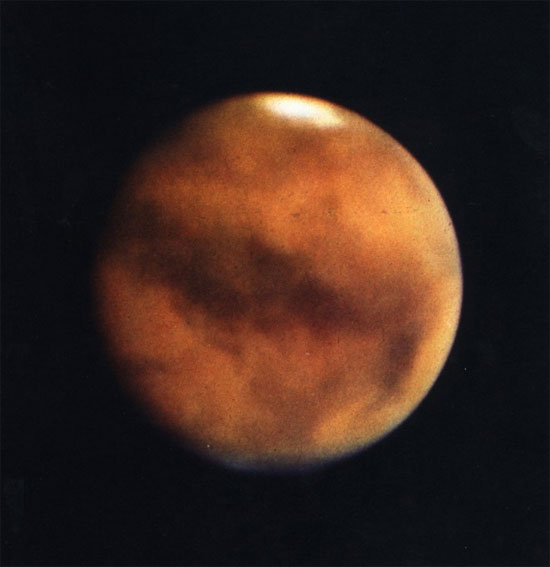Russian launch project
In Russia, work began in the framework of the European cooperation project "EkzoMars" - launching two spacecraft to probe into Mars in 2016 and 2018. In order to carry out this mission, a group was formed. Researchers.
Director of the Space Research Institute of the Russian Academy of Sciences Lev Zeleny said: 'At the first stage until 2016, Russia's participation is limited by the provision of "Proton" missiles and equipment for Europe's TGO (Trace Gas Orbiter) module. This module will look for traces of gases in the Martian atmosphere, and researchers are particularly interested in distributing methane gas. There are two Russian space devices: the first block will study the distribution of water under the surface of Mars and the other package will observe the spectrum to know the atmospheric composition on the Red planet.

Artwork: Wired.com
In addition to trajectory equipment, the first "Proton" missile will carry the sensors 'record landing process'. Its mission is to complete new technologies to enter the Martian atmosphere, approaching and landing.
"Trace Gas Orbiter" will also map areas on Red Planet, where methane gas and other gases are spraying on the atmosphere. There are many possibilities in these places to detect traces of microorganisms, whereby this map will help to select the landing site at the second stage of the project "EkzoMars'. The second phase begins. in 2018 it will be much more complicated Mr. Lev Zeleny continues: 'Russia will once again supply "Proton" missiles. In addition, Russia will build landing gear to transport self-propelled "Pasteur" vehicles. down to Mars. Autonomous vehicles designed and manufactured by the European Space Agency (ECA) include rigs capable of digging up to 2 meters deep. Russia's mission is not only to transport this equipment, Russia will also participate in the research program. Importantly, on the landing gear there will be Russia's scientific tool block: the 'robotic' arm for soil sampling and the Chromatograph - device for splitting gas mixtures. We will take the self-propelled vehicle to the surface of Mars and somehow continue to work according to Russia's science program. '
The Russian experience gained in 2015-2016 will reduce the risk of repeating the project's fate to Phobos - Mars satellite. In early 2012, the "Phobos-Grunt" research station fell into the Pacific Ocean, and the mystery of Phobos has yet to be revealed. So far, the scientific community continues the debate around the satellite - that the asteroid is attracted to Mars or a cosmic object formed with Mars. As planned, in the years 2022-25, Russia will implement a smaller-scale "Phobos-Grunt" project.
- Russian missiles fell into the sea immediately after leaving the platform
- DARPA launched a space transport project
- Russia revealed the space program by 2020
- Russian satellites fall immediately after launch
- Russia reused Soyuz after its failed launch
- Video: Missiles carry satellites falling after launch
- China fixed the time for the launch of the lunar exploration ship
- Russian missiles carrying Mexican satellites fall as they launch
- Russia successfully launched the Dutch telecommunications satellite
- Russia will launch ships on Mars's satellites
- Russia will launch ships to the moon
- Russia successfully launched Anik G1 telecommunications satellite
 Van Allen's belt and evidence that the Apollo 11 mission to the Moon was myth
Van Allen's belt and evidence that the Apollo 11 mission to the Moon was myth The levels of civilization in the universe (Kardashev scale)
The levels of civilization in the universe (Kardashev scale) Today Mars, the sun and the Earth are aligned
Today Mars, the sun and the Earth are aligned The Amazon owner announced a secret plan to build a space base for thousands of people
The Amazon owner announced a secret plan to build a space base for thousands of people Russia creates 50 qubit ion quantum computer
Russia creates 50 qubit ion quantum computer  Why are there so many people of Asian descent living in Russia?
Why are there so many people of Asian descent living in Russia?  Why in this country, buying a can of 'god cow' must also show a citizen's identity?
Why in this country, buying a can of 'god cow' must also show a citizen's identity?  What would the space station be without Russia?
What would the space station be without Russia?  The world's most powerful icebreaker started testing at sea
The world's most powerful icebreaker started testing at sea  The country once had the opportunity to erase Russia from the world map
The country once had the opportunity to erase Russia from the world map 